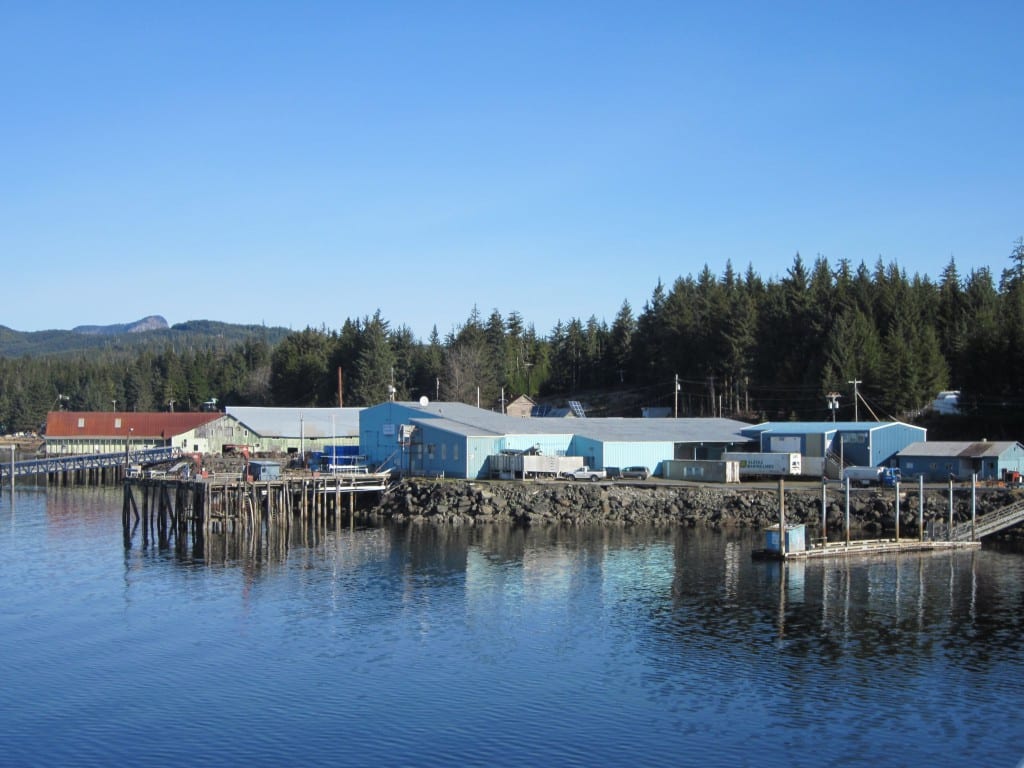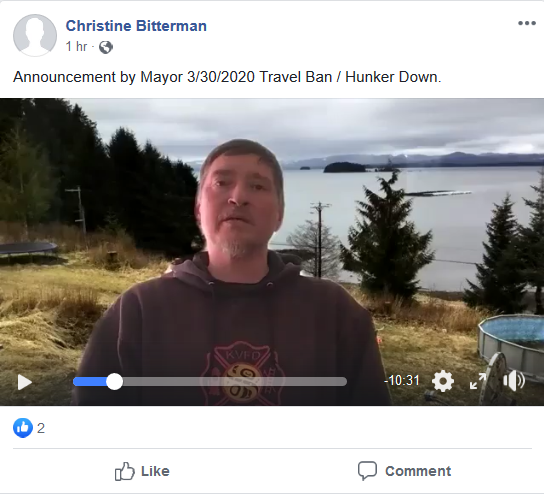
There’s fine print in a recent state health mandate to prevent the spread of coronavirus that allows smaller, more isolated communities to restrict who comes and goes.
The main thrust of the mandate is to restrict non-essential travel within the state to prevent illness and death from COVID19. But it makes exceptions for a broad list of workers employed in industries from fisheries, to mining to government service and others.
The mandate also allows towns off the road system, with less than 3,000 people and no hospital to craft stricter rules.
The city of Hoonah on Chichagof Island fits the bill.
City Manager Dennis Gray Jr. says there’s only a small health clinic to serve around 800 people.
“There’s (physician’s assistants), but no doctors no ventilators,” he said Monday. “It’s the concern. So anybody that does contract COVID19 and needs to be hospitalized has to be medevaced out to Sitka or Juneau.”
That’s about a 20-minute flight. Which makes such trips for shopping or medical appointments a common occurrence. Until recently.
On Sunday the city council has banned all travel to Hoonah until further notice as part of that city’s COVID19 response.
“We know it’s going to be an inconvenience for folks,” he said, “But we think that if we can stop the entry then it’s going to be better off for everybody in town.”
People can leave. Employees of Juneau area gold mines recently left to work 28-day shifts. But Hoonah residents out of town when the order went into effect are banned from returning for at least two weeks — or maybe longer.
“There are those folks that are coming back from trips in Oregon that can’t come back,” Gray said. “They called in concerned but we told them they can’t come home.”

Another Southeast island community has taken it even further by banning travel in both directions.
“Absolutely no travel in or out of Kake for the next two weeks,” Kake Mayor Lloyd Davis said in a Monday video carried on Facebook Live.
“We’re at a critical point right now as far as this COVID19 and how fast it’s progressing,” he said in an address to Kake’s 600 residents. “And we, as a community need to do anything to keep this virus from coming into our town.”
Kake’s travel ban went into effect at midnight Tuesday and runs at least until April 15.
“Some people might think, you know, I’m being excessive,” Davis told CoastAlaska on Monday. “But I’m doing this out of precaution, you know, for the health and safety of my community.”
The city allows residents to apply for exemptions. And it adds allowances for visiting technicians to service critical infrastructure like water, power and telecommunications. But otherwise Davis says he wants people to stay put and keep the virus from spreading.
Alaska Municipal League Executive Director Nils Andreassen is tracking emergency orders issued by local governments.
“I think across the state we’ll see local governments do a variety of measures and basically have a lot of leeway in terms of who they allow in,” he said.
The municipal league had asked the state to defer to local leaders to craft restrictions to prevent coronavirus from spreading to their communities above and beyond what the state is already doing.
“If the state sets a baseline, then local governments can restrict beyond that,” he said.
In Hoonah, the city manager says people are mostly keeping inside their homes after being asked to shelter in place. It’s been sunny and normally things get buzzing when the weather brightens. But not lately.
“Playgrounds are closed unfortunately — just to keep the kids safe,” Gray said. “So there’s not a whole lot people are doing. Yeah, it’s pretty quiet.”
There are those that the state won’t allow local governments to restrict: law enforcement on official business, first responders like firefighters and medics as well as case workers with the state Office of Children’s Services investigating reports of abuse or neglect.











